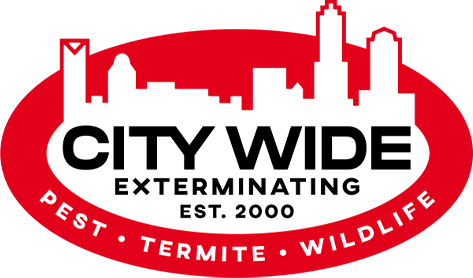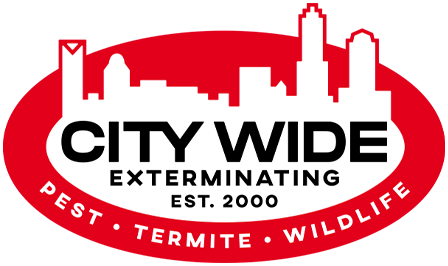Winter is almost here, and in pest control terms that means a reprieve from many of the warm-weather insects that cause trouble, like mosquitoes, bees & wasps, and termites (for the most part). So with all of those annoying little buggers taking a winter nap, why would you need pest control in the winter? Well of course there are some other pests (both insects and critters) that take colder temperatures as an opportunity to find somewhere warm to hide out and feast on some food–and that somewhere can be your home.
COMMON WINTER WILDLIFE IN NORTH CAROLINA
Let’s start off by taking a look at some of the woeful wildlife that can burrow into your walls and snatch your food during colder months:
- Raccoons
- Raccoons are also active in the spring and summertime, but during the winter when they’ll be looking for warm shelter. Raccoons will take shelter in or around man-made structures, which can make your home a target.
- Skunks
- Skunks will look for warm places to burrow underneath for warmth during the colder months, so keep an eye out for skunk holes near decks, sheds, porches, garages, and home foundations.
- Snakes
- A number of snakes are common in North Carolina, and they usually look for dark, warm spaces to hide during cold weather. Your shed, barn, garage, or even some old tree stumps in your yard will do the trick, so be on the lookout in those places–and tread carefully!
- Squirrels
- Squirrels look for places to burrow for winter hibernation in places like sheds, attics, and garages. Squirrels will also create dens in trees, which is not an immediate problem in the winter due to their hibernation, but can be an issue in the spring in summer; squirrels can cause some serious lawn damage in warmer months.
- Bats
- Bats hibernate come winter and will look for dark, warm places to hide to escape the cold like your attic, garage, or basement.
- Mice
- Mice will start trying to populate your home looking for warmth and food. Mice are extremely flexible, which means they have a high ability to actually get in, which means these rodents will definitely be one of the wildlife pests that you need to keep an eye out for.
COMMON WINTER INSECTS IN NORTH CAROLINA
There are fewer insects that make their way indoors during the winter, but there are two species to look out for:
- Ant
- There are 10 different types of ants that are common in North Carolina, and they mostly only cause food contamination–not too dangerous. However, carpenter ants can cause serious structural damage over time.
All types of ants are limited in their activity during the winter- they slow down so that they can conserve energy- but they can become active if their colony is located near a warm enough heater. Even with that inactivity, you don’t want an ant colony living in your home over the winter months, because that can mean an active, well-established ant colony once the weather warms up.
- There are 10 different types of ants that are common in North Carolina, and they mostly only cause food contamination–not too dangerous. However, carpenter ants can cause serious structural damage over time.
- Spiders
- Technically spiders are arachnids- not insects- but they can still cause major problems. Some of the spiders in North Carolina are venomous, namely the brown recluse and the black widow. Other spiders- of the non-venomous variety- pose a much less significant threat, but can be an indication that you have other insect infestations on your hands: spiders tend to like living where they can access food, and that food is usually other insects.
FINDING WINTER PEST CONTROL
So pests can be a problem in the winter, but what can you do? If you’re already dealing with a wildlife problem, City Wide Exterminating provides wildlife removal services that will safely get rid of any of the winter wildlife we talked about in this post. If you aren’t dealing with any pest problems yet, your home may be a target–but City Wide can help with that, too. We offer preventative residential pest control plans that cover wildlife problems and insects as well. Have any questions? Just get in touch and we’ll get back to you ASAP!

